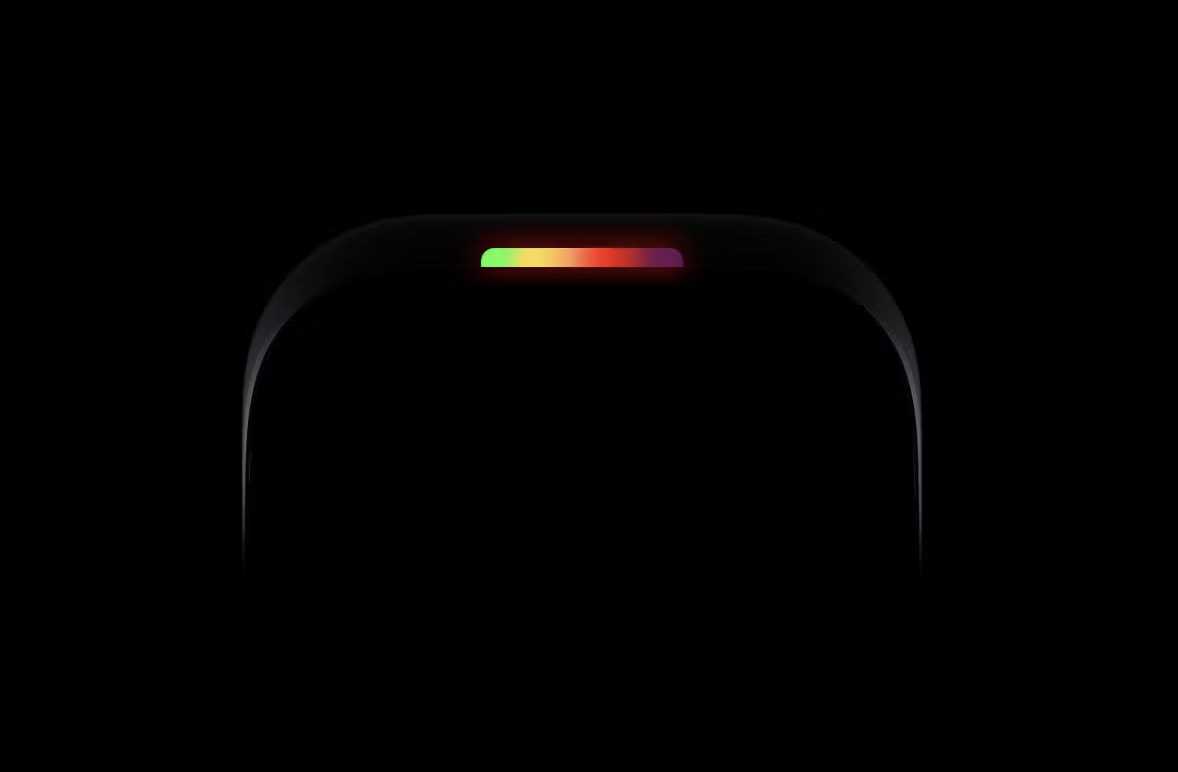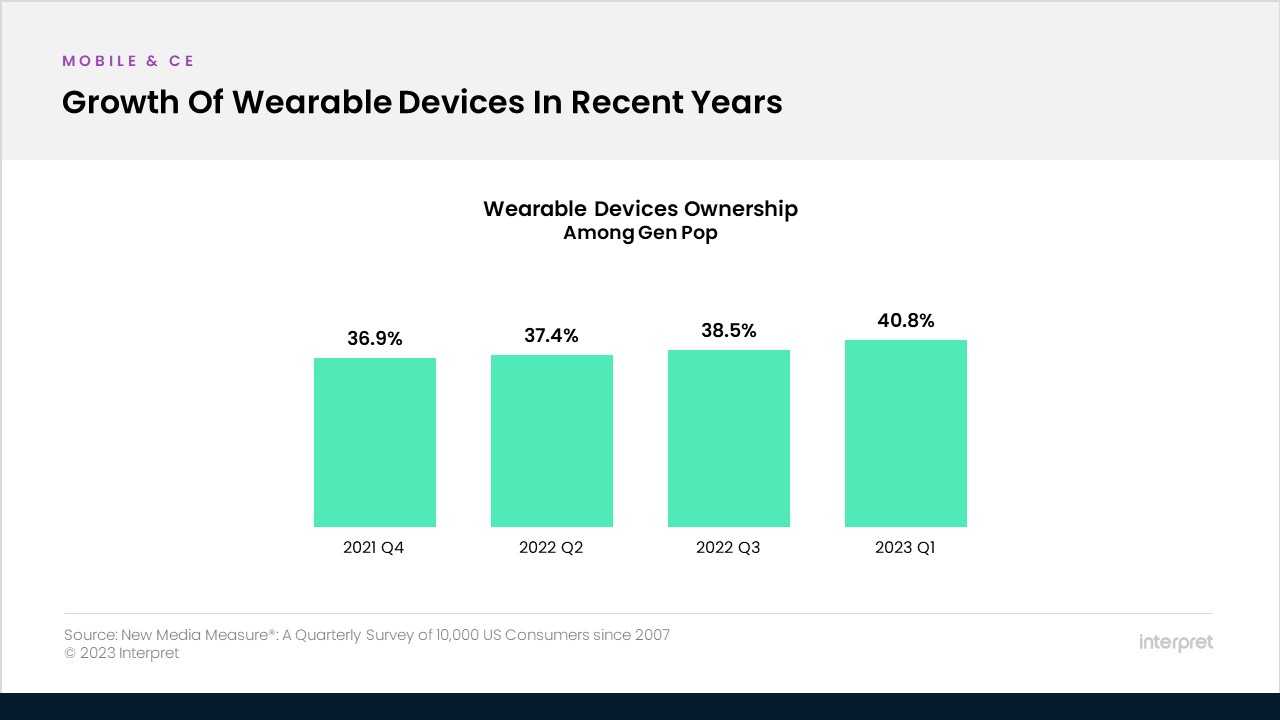For most consumers, smartphones have become an indispensable part of their daily lives, enabling them to communicate, work, shop, play games, listen to music, and more. And for a large slice of consumers, smartwatches like the Apple Watch are nearly as important. In fact, according to Interpret’s New Media Measure®, there’s been an increasing trend towards wearables adoption since 2021, rising from around 37% of US consumers two years ago to 41% in 2023 who report owning either a smartwatch or fitness tracker.
However, as technology continues to evolve at breakneck speed and AI begins to augment more and more devices, there’s a likelihood that many smartphone and/or smartwatch functions could be replaced with smart clothing or devices that easily attach to clothing. For example, former Apple design director Imran Chaudhri recently introduced plans to launch the Humane AI Pin, which attaches to clothing and effectively replaces a person’s smartphone by projecting apps, calls, voice assistance, and more on hands or other surfaces, enabling sci-fi-like interactions on body parts.
“Our Ai Pin presents an opportunity for people to take AI with them everywhere and to unlock a new era of personal mobile computing which is seamless, screenless, and sensing,” the company explained in a press release.
The wearable pin, powered by Qualcomm’s Snapdragon tech and slated for release by the end of the year, incorporates cameras, sensors, speakers, and AI-enhanced interactivity. In a TED Talk demonstration, Chaudhri holds up a bar of chocolate and asks out loud if it’s okay for him to eat it. The pin scans it and quickly responds, “Given your intolerance, you may want to avoid it.”
With access to biometric data, current wearables already can offer users real-time insights and personalized feedback on their health or fitness goals. Integrating sensors that can track biometrics in actual fabrics is likely the next step. One company called Hexoskin is already making smart shirts that come with built-in textile sensors that track things like a person’s respiration and can conduct real-time ECGs for the heart.
Socks are another common article of clothing that’s receiving the smart treatment. Sensoria makes socks with special pressure sensors to monitor a runner’s foot landing, cadence, and stride length, while Siren Socks keep track of a person’s foot temperature, which may offer a way to detect ulcers caused by diabetes before they form.
Ultimately, with microchips and AI, there’s no telling just how sophisticated everyday clothing will become in the future. Wearing a watch or staring at a smartphone could one day seem quaint.





